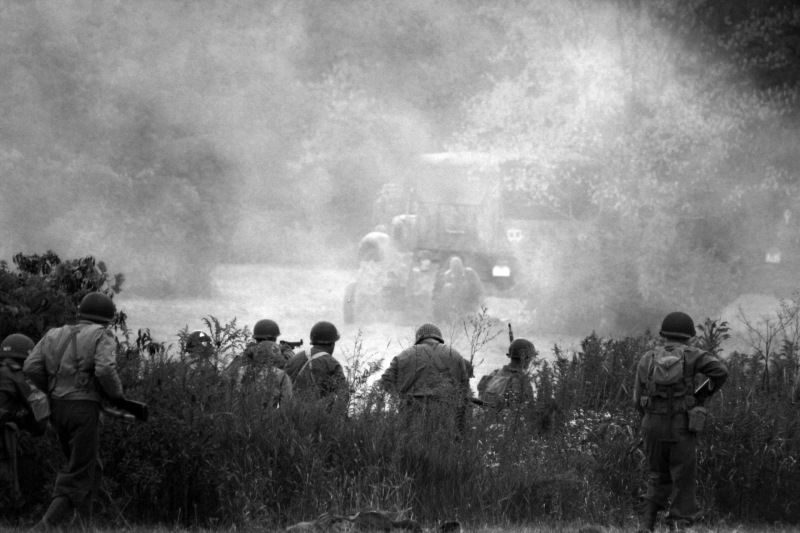In 1995, the Smithsonian Institution in Washington was caught in controversy on the portrayal of the B29 Bomber that dropped the first nuclear bombs on Japan's two cities in World War II (WWII). The stakeholders were fractured in considering it an act of heroism or a portrayal of unparalleled violence. After a yearlong debate, the idea of the ambitious display was scrapped.
Just like the stakeholders of the Smithsonian Museum, there is a divide among the people on WWII. Some might agree with why it happened; others may not see eye-to-eye. Regardless of who's right or wrong, the fact remains that war brought destruction and violence that people couldn't have imagined. Historians aren't the only ones who often debate the morality of war; people in literature have also shared their insights. Let's take a look at how writers have depicted war and how they challenged the concepts of heroism and morality.
War and Literature:
When the First World War occurred, no one was ready for the unprecedented devastation and upheaval it would cause. It broke the illusion of progress and stability and depicted the true nature of man. The act of war left an unrepairable scar on the world, affecting millions, including artists and writers.
The horrors of trench warfare and disillusionment resulted in writers exploring new narratives focused on the disorienting nature of life. Writers such as T.S. Eliot, Virginia Woolf, and Ezra Pound wrote literary pieces such as "The Waste Land" and "Mrs. Dalloway" that explored the existential crisis that war brought.
WWII only deepened the impact of war on literature. As WWII brought greater atrocities, such as the Holocaust and the nuclear bombing of Japan, writers took it upon themselves to depict the true nature of war through writing. Some became advocates of peace to discuss the injustices war brought. Others turned to grapple with existential questions about human nature, morality, and heroism to explore the impact of war on the human psyche.
In addition to writing themes, wars also deeply impacted authors' writing styles. It contributed to newer forms of expression, such as non-linear storytelling and the use of irony and satire to cope with war tragedies.
What Literature Tells Us About Heroism and Morality?
Heroism and Morality are concepts that are often debated while describing war. The nation's top brass depicts fighting for your country as an act of patriotism. Taking lives and fighting against people of different borders is met with a positive outlook. However, writers who have seen the harsh reality of war think otherwise. Consider Slaughterhouse-Five by Kurt Vonnegut. The book introduces you to the protagonist, Billy Pilgrim, who becomes unstuck in time due to his war experiences. Throughout the book, Billy Pilgrim is shown to be a coward and is only victim to circumstances that he has to fight in the war. The dark humor in the book exposes the absurdity of war and questions the notion of good and bad, which becomes irrelevant in the face of senseless violence.
Similarly, Erich Maria Remarque challenged these concepts in his historical novel All Quiet on the Western Front. It tells the story from the perspective of a German Soldier who, along with his comrades, gradually saw a shift in their views during the war. The book challenged the glorification of heroes and discussed the devastating impact on soldiers. In the context of morality, the book portrays the soldiers' ambiguity in determining right from wrong.
Similarly, Greek Author Lefteris Sakkas has also challenged the concepts of heroism and morality with his literary masterpiece "When Death Picks Favorites." The historical novel portrays the story of two soldiers and how their lives changed with the war's progression. While most join the military for the good of their country, the story gives a compelling view of the mental health soldiers have to sacrifice to battle a pointless battle.
While most authors focused on a single side, Lefteris did things differently. He offered a dual perspective from two opposing sides. One was from the US military, while the other sided with Nazi Party's paramilitary Schutzstaffel (SS) organization. Through it, he showed that on whatever side, the effect of war was the same.
Final Note:
WWII literature challenges our black-and-white views of war. Through novels like Slaughterhouse-Five and All Quiet on the Western Front, writers expose conflict's human cost and moral complexities. These stories remind us that war's impact goes beyond heroism and leaves lasting scars on all involved.
Explore "When Death Picks Favorites" by Lefteris Sakkas for a unique perspective on WWII. This gripping historical novel, available in English translation on Amazon, offers a dual narrative from opposing sides of the war, highlighting the universality of war's devastation. Delve deeper into WWII history and see the conflict through a new lens.



